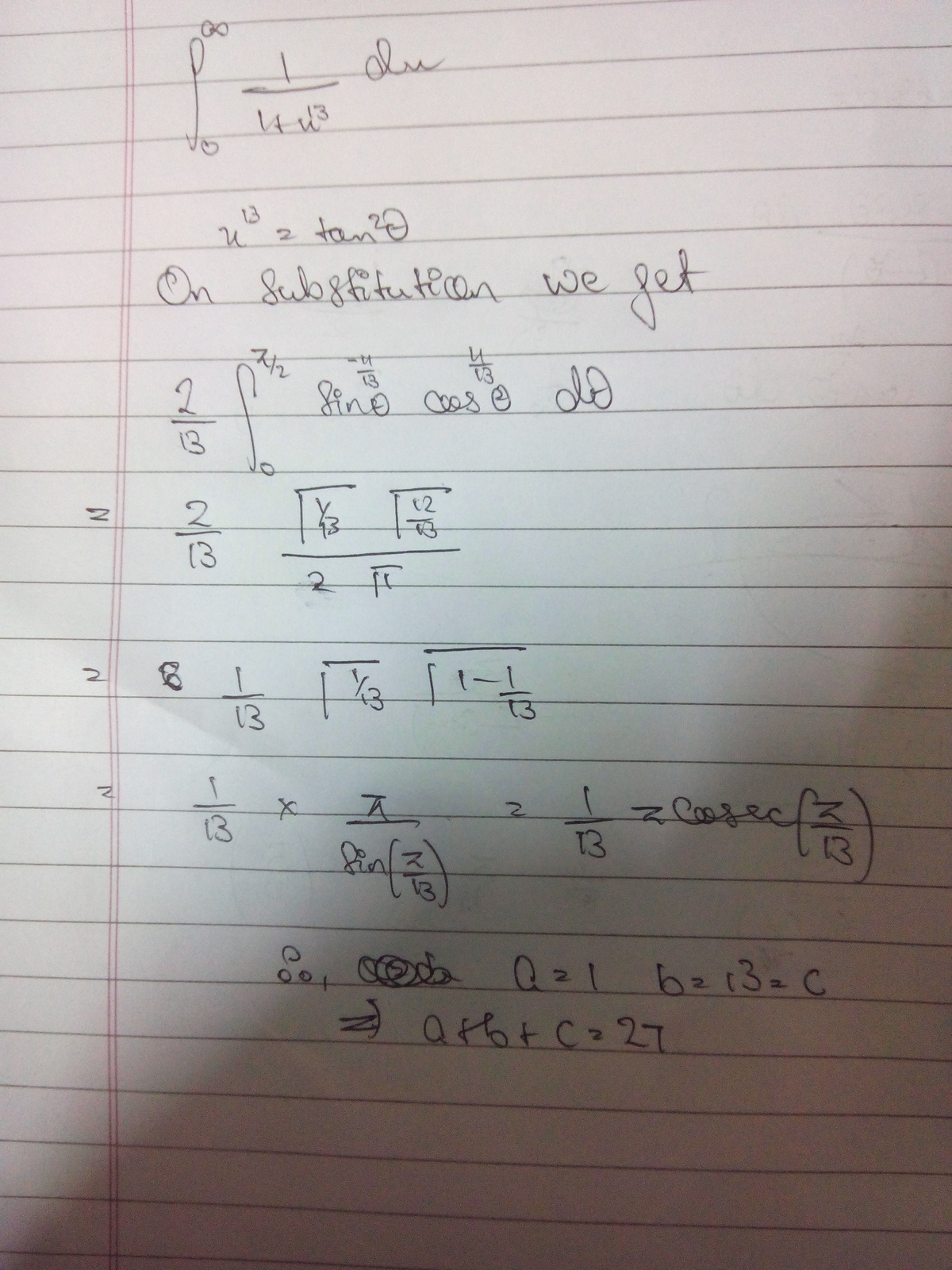My age is everywhere
∫ 0 ∞ 1 + x 1 3 1 d x = b a π csc ( c π )
If the equation above holds true for positive integers a , b and c , with a , b coprime, find a + b + c .
The answer is 27.
This section requires Javascript.
You are seeing this because something didn't load right. We suggest you, (a) try
refreshing the page, (b) enabling javascript if it is disabled on your browser and,
finally, (c)
loading the
non-javascript version of this page
. We're sorry about the hassle.
2 solutions

One can use contour Integration to show that ∫ x m / ( 1 + x n ) d x = ( π / n ) / s i n ( m + 1 ) π / n . with the given set of limits(zero-infinite).For us the integral is simply π / 1 3 c s c ( π / 1 3 )
A beautiful solution I have seen multiple times on Math Stack:
∫ 0 ∞ x n + 1 1 d x = ∫ 0 ∞ ∫ 0 ∞ e − t ( 1 + x n ) d x d t
Sub u = x n t d u = n x n − 1 t d x
n 1 ∫ 0 ∞ e − t t n − 1 d t ∫ 0 ∞ u n 1 − 1 e − u d u =
n Γ ( 1 − n 1 ) Γ ( n 1 ) = n sin n π π by Euler’s Reflection Formula
Plug in 13 for 1 3 sin 1 3 π π